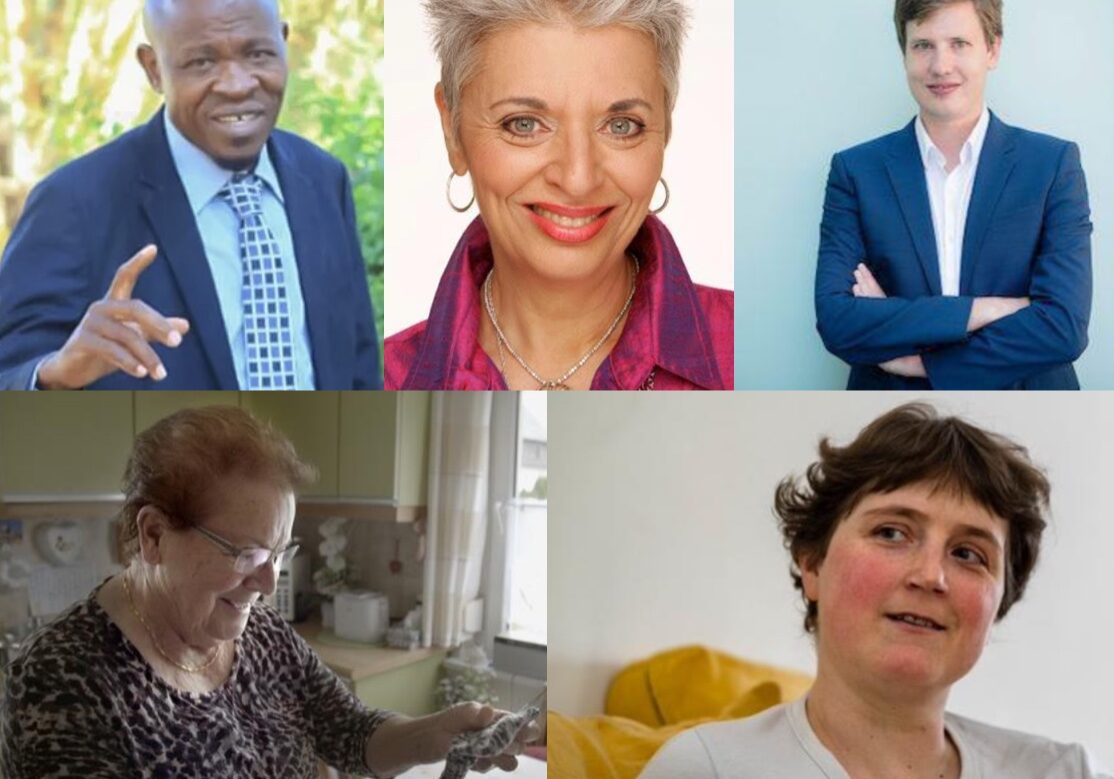2022 Nuclear Free Future Award winners announced

Tanzanian activist, Anthony Lyamunda, American podcaster, Libbe HaLevy, and German researcher, Malte Göttsche, are the winners of the 2022 Nuclear Free Future Award. The prizes will be awarded officially during an online ceremony in February 2023, but were announced last week. The prize comes with the award of 5,000 Euros.
Lyamunda is an outspoken opponent of uranium mining in the face of considerable intimidation and remains dedicated to the protection of peoples’ lives and livelihoods. He hails from humble beginnings in the village of Makanda but in 2008, when rumors about plans to mine uranium in central Tanzania first circulated, he and others formed a movement of people which led to the foundation of CESOPE (Civil Education is the Solution for Poverty and Environmental Management) in 2009. While Anthony and his group successfully defeated uranium mining plans in his area (Bahi region),the group remains active in opposing ROSATOM, active in the southwest of the country, where it is planning to mine 20-30 tonnes of uranium a year at its Mkuju River Project.
Libbe HaLevy is closing in on her 600th edition of Nuclear Hotseat, the podcast she was inspired to create after the March 2011 Fukushima nuclear disaster. Although cognizant of the nuclear issue years earlier — she was in the Harrisburg area when the Three Mile Island reactor went into partial meltdown — she was compelled to reignite her anti-nuclear passion given what unfolded in Japan and the on-going risk nuclear power continues to pose to us all. The lively weekly podcast features interviews with renowned guests from around the world — and is heard by audiences globally — and remains the only such podcast known to focus exclusively, and in depth, on the perils of nuclear power and nuclear weapons. This week, HaLevy reached a milestone with her 600th broadcast of Nuclear Hotseat. Listen.
Malte Göttsche is a young German researcher in physics dealing with new verifications possibilities in nuclear arms control, particularly focusing on monitoring disarmament among nuclear weapons states. Expertise and resources to foster control and verification among nuclear weapons states is scarce and often politically neglected. In this context, Malte Göttsche’s research project at RTWH Aachen is of crucial importance. Together with a young team of 11 highly competent and committed women and men he develops new, promising methodologies (“nuclear archeology”) of nuclear arms control. His working credo is inspired by Carl Friedrich von Weizsäcker (1963): The scientist often retreats to the ivory tower of pure research, and I would like to say that this is not enough for scientific youth.
Honorary awards for their lifelong achievements went to anti-nuclear waste activist, Cécile Lecomte, and German protester, Irmgard Dietl, who fought against attempts to site a reprocessing plant in Wackersdorf, Germany.
Lecomte was nicknamed “the Squirrel” for her protests conducted from high in the trees, particularly against nuclear waste transports from Germany to France and Russia. Primarily known in Germany, but as a French national, Lecomte was able to organize cross-border cooperation within the anti-nuclear struggle. Due to serious illness, she has recently been confined to a wheelchair, but this has not prevented continued activism, using hoists to send her up into the trees once more.
Dietl confronted a deeply conservative political bureaucracy in Bavaria and engaged in acts of non-violent civil disobedience in her contribution toward preventing a reprocessing plant in her community. She also became famous for knitting “resistance socks” to keep protesters at the site warm. A German feature film, with English subtitles, tells the story of “Wackersdorf.”
Headline photo, left to right top row, Lyamunda, HaLevy, Göttsche, bottom row left to right Dietl, Lecomte.
Support Beyond Nuclear
Help to ensure a safer, greener and more just world for all

